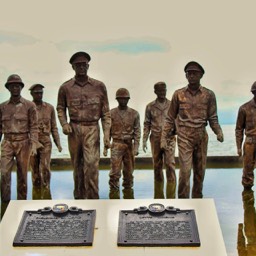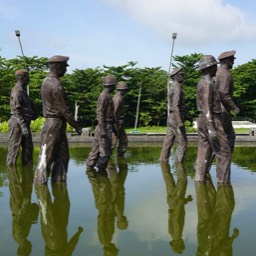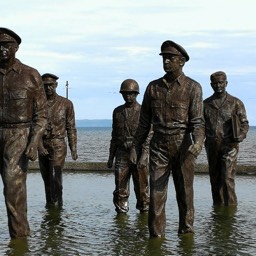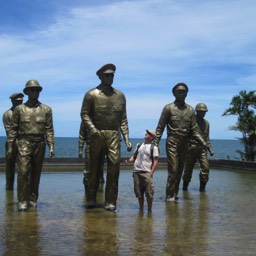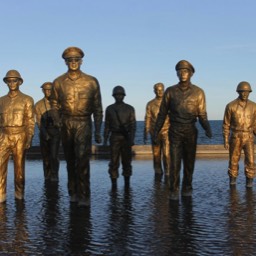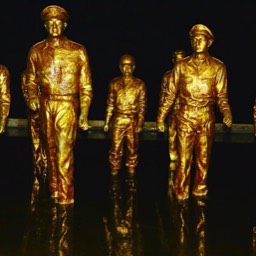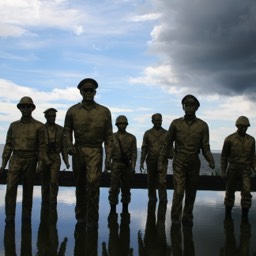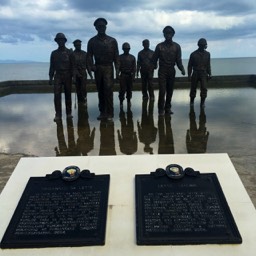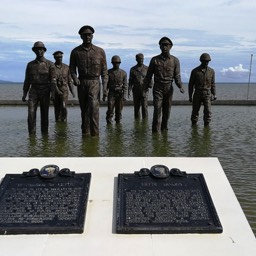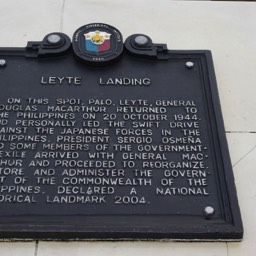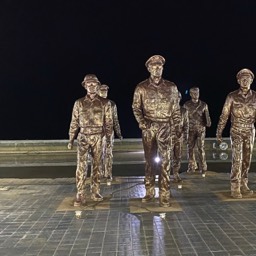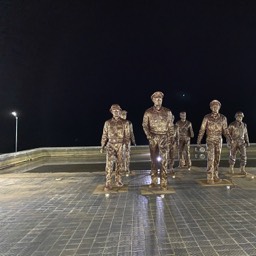

MacArthur Landing Memorial National Park

Top Layer
General MacArthur wades ashore at Red Beach
Bottom Layer
Leyte Landing: 20 October 1944
On October 20th, 1944, General Douglas MacArthur returned to the Philippines, landing on the island of Leyte after an Allied victory against the Japanese. Soon after, as a result of this victory, the largest naval battle of World War II, 'The 'Battle of Leyte Gulf', commenced and in turn the beginning of the Allied reconquest of the Philippines after three years of Japanese rule. To mark such a momentous occasion, the MacArthur Landing Memorial Park was established in 1977 under the orders of then-President Ferdinand Marcos of the Philippines.
In 1942, intensified fighting in the Philippines between the US Army and the Imperial Japanese Army eventually led to an Allied surrender and the imprisonment of thousands of Allied troops. General MacArthur was ordered by President Roosevelt to escape to Australia and upon parting declared, ‘I shall return’. Over the next three years, MacArthur was assigned command of the Allied forces in the Southwestern Pacific, and by 1944 had gained the support of the Pacific Fleet to invade the Philippines. On October 20th, MacArthur’s forces landed on Leyte and after four hours of intense fighting had secured the Red Beach sector. As a sign of victory, General MacArthur waded ashore to the beach from his boat that had run aground. Along with him followed a group of important colleagues, including President-in-exile Sergio Osmena, Lieutenant-General Richard Sutherland, Brigadier-General Carlos P. Romulo, Major-General Courtney Whitney, Sergeant Francisco Salveron and CBS Radio correspondent William J. Dunn. Later that day, MacArthur announced on a radio broadcast ‘People of the Philippines, I have returned!’ By March the following year, the Allied forces had regained the capital Manila and in June, MacArthur announced his offensive operations in Luzon had come to an end. World War II officially ended two months later in August 1945.
Known as the A-Day Landing, photographer Gaetano Faillace captured the significant moment of MacArthur and his entourage wading ashore on film. Consequently, it became one of the most iconic photographs of World War II. For this reason, the central monument of the MacArthur Landing Memorial Park are the seven bronze statues portraying the A-Day Landing. Designed by sculptor Anastacio Caedo, the statues stand at almost 10-feet tall and were officially inaugurated in 1981 at the 37th anniversary of the A-Day Landing. In front of the sculpture, two tablets – one in Filipino and one in English – describe the symbolism of the statue and the reasoning for being positioned there. Within the park, there is also a small museum that contains a selection of photographs, a copy of MacArthur’s speech and a diverse selection of items collected to reflect MacArthur’s involvement in the Philippines throughout World War II. Ceremonies are held annually on the 20th of October to mark the Leyte Gulf landing and the subsequent Allied victory.
Source: warinasia.com

